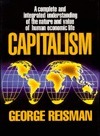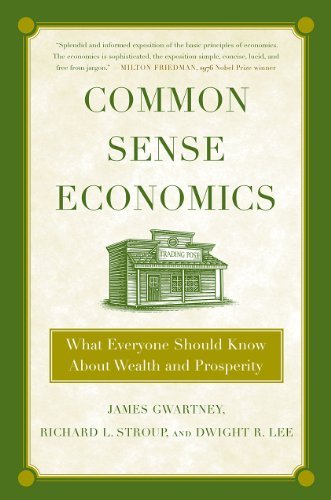
Capitalism: A Treatise on Economics
Book Description
Imagine a world where prosperity is not just a dream but a relentless pursuit—a place where innovation thrives and freedom reigns. In "Capitalism: A Treatise on Economics," George Reisman unravels the intricate web of capitalism, revealing its power to elevate human potential and challenge the status quo. With razor-sharp insights, he dissects the myths of regulation and government intervention, showcasing capitalism as the ultimate engine of wealth creation and societal progress. As the tension between freedom and control escalates, one question looms: can we fully harness capitalism's potential to forge a brighter future for all?
Quick Book Summary
"Capitalism: A Treatise on Economics" by George Reisman provides an exhaustive defense of capitalism as the foundation of human prosperity and freedom. Drawing upon principles of economics, history, and philosophy, Reisman refutes common misconceptions and critiques leveled against capitalist systems. He demonstrates how free markets, driven by self-interest and voluntary exchange, foster innovation, efficiency, and wealth creation. The book challenges government intervention, arguing that regulation and coercion distort markets and impede progress. Reisman details how capitalism aligns individual incentives with societal well-being, fostering a dynamic and adaptive economy. Through logical reasoning and historical analysis, the book positions capitalism not merely as an economic system, but as a moral force essential to human flourishing.
Summary of Key Ideas
Table of Contents
The Role of Capital Accumulation in Economic Growth
Reisman begins by exploring the significance of capital accumulation as the backbone of economic growth. He argues that savings and investment fuel the expansion of production, leading to higher productivity and rising living standards. Through detailed examples, he shows how the accumulation of machinery, tools, and knowledge under capitalism enables labor to become more efficient, producing more goods with fewer resources. This section lays the foundation for understanding how capitalism generates sustained prosperity by continually increasing the capacity to create wealth.
The Moral and Practical Case for Economic Freedom
The book proceeds to advance both moral and practical arguments for economic freedom. Reisman posits that voluntary exchange, protected property rights, and individual self-determination are not only effective for wealth creation, but also deeply ethical. He contends that capitalism rewards merit, innovation, and hard work, fostering an environment where individuals can pursue happiness and self-realization. The alignment of personal motives with market outcomes creates a self-regulating system that channels self-interest toward the common good.
Consequences of Government Intervention and Regulation
Reisman provides a thorough critique of government intervention and regulation. He asserts that attempts to control or direct the market—through price controls, subsidies, or antitrust laws—inevitably lead to distortions, inefficiencies, and unintended consequences. Government interference, according to Reisman, disrupts the signals provided by prices and profit, reduces incentives to invest, and often creates more harm than the problems it claims to solve. He supports this argument with historical instances where intervention undermined economic progress.
Debunking Myths about Monopolies and Exploitation
One of the core themes is the dismantling of prevalent myths about capitalism, particularly regarding monopolies, exploitation, and inequality. Reisman rebuts the notion that capitalism inherently breeds monopolistic power or reduces workers to mere cogs. He illustrates how competition and free markets actually curb monopolistic tendencies and empower consumers. Rather than exploiting labor, capitalism, he maintains, increases real wages and broadens opportunities by making labor more productive through capital investment.
Capitalism's Impact on Social Progress and Human Welfare
Finally, Reisman emphasizes capitalism’s transformative impact on society and human welfare. He charts how advances in technology, medicine, and standards of living are direct outcomes of a capitalist framework that incentivizes innovation. The book highlights capitalism’s ability to adapt to change and respond to human needs, arguing that where it is most free, society flourishes. Reisman concludes that embracing capitalism more fully offers the best prospects for universal prosperity, individual liberty, and genuine progress.
Download This Summary
Get a free PDF of this summary instantly — no email required.





